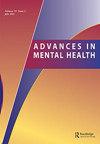Research-based, clinically informed, client- and family-centred ‘best practice’
IF 1.7
Q3 PSYCHIATRY
引用次数: 0
Abstract
The mental health workforce, plus those who research in the field, have a moral imperative to promote and deliver interventions and programs that have been evaluated for efficacy and continued safe use. Accessibility, equity, effectiveness, acceptability and value for money are other critical considerations in service design and delivery. Identifying which programs and interventions fulfil those requirements necessitates an evaluation andmonitoring of practices, involving both process and outcome evaluation methodologies, and the measurement of client satisfaction. For researchers this means that they need to ensure that their research is grounded in the routine experiences of end users, and the experiences of practitioners and program deliverers, with clear impacts highlighted for how services and programs might need to be replaced, changed or adapted. However, while research may be available, that in of itself does not always transfer to best practice. There is often a disconnect between research and practice, sometimes caused by research that is not replicable in the real world nor reflective of the complexity of issues seen in practice. There may be dissemination issues including a lack of training opportunities. Another obstacle to the transfer of research to practice may be the unwillingness of governments and organisations to change infrastructure and systems, perhaps due to funding constraints. Instead or as well, individual practitioners may be unwilling to make changes to their practice due to time constraints or a general unwillingness to change; ultimately if we ask practitioners to change their behaviour it is implying that what they were doing previously was somehow inadequate and no one wants to hear that. The need to promote the uptake of research to practice is a key tenet of this journal and the processes to do so, often referred to as implementation science, have been showcased in this journal over many years (e.g. Howe et al., 2011; Reupert, 2021). Historically, conceptualisations of the term ‘evidence-based practice’ involved a hierarchy of evidence ratings and where it is argued that the more rigorous the methodology, the stronger the evidence. There is, however, increasing acknowledgement in the medical, public health and mental health fields that how we define ‘best practice’ is broader than relying on the results of large scale randomised controlled trials, and is instead a collaborative decision-making process that considers three key components namely以研究为基础、临床知情、以客户和家庭为中心的“最佳做法”
精神卫生工作人员以及该领域的研究人员在道德上有责任促进和提供经过有效性评估并持续安全使用的干预措施和规划。可访问性、公平性、有效性、可接受性和物有所值是服务设计和交付中的其他关键考虑因素。确定哪些项目和干预措施满足这些要求,需要对实践进行评估和监测,包括过程和结果评估方法,以及客户满意度的测量。对于研究人员来说,这意味着他们需要确保他们的研究立足于最终用户的日常经验,以及从业者和项目交付者的经验,并明确强调服务和项目可能需要如何被取代、改变或适应。然而,虽然研究可能是可用的,但研究本身并不总是转化为最佳实践。研究与实践之间往往存在脱节,有时是由于研究在现实世界中不可复制,也不能反映实践中所见问题的复杂性。可能存在传播问题,包括缺乏培训机会。将研究转化为实践的另一个障碍可能是政府和组织不愿意改变基础设施和系统,这可能是由于资金限制。相反,由于时间限制或者普遍不愿意改变,个体实践者可能不愿意改变他们的实践;最终,如果我们要求从业者改变他们的行为,这意味着他们之前所做的是不充分的,没有人想听到这一点。促进研究应用于实践的需要是本杂志的一个关键宗旨,而这样做的过程,通常被称为实施科学,多年来一直在本杂志中得到展示(例如Howe等人,2011;Reupert, 2021)。从历史上看,“基于证据的实践”一词的概念化涉及证据等级制度,并且认为方法越严格,证据就越有力。然而,在医学、公共卫生和心理健康领域,越来越多的人认识到,我们如何定义“最佳实践”比依赖大规模随机对照试验的结果更广泛,而是一个考虑三个关键组成部分的协作决策过程,即
本文章由计算机程序翻译,如有差异,请以英文原文为准。
求助全文
约1分钟内获得全文
求助全文

 求助内容:
求助内容: 应助结果提醒方式:
应助结果提醒方式:


